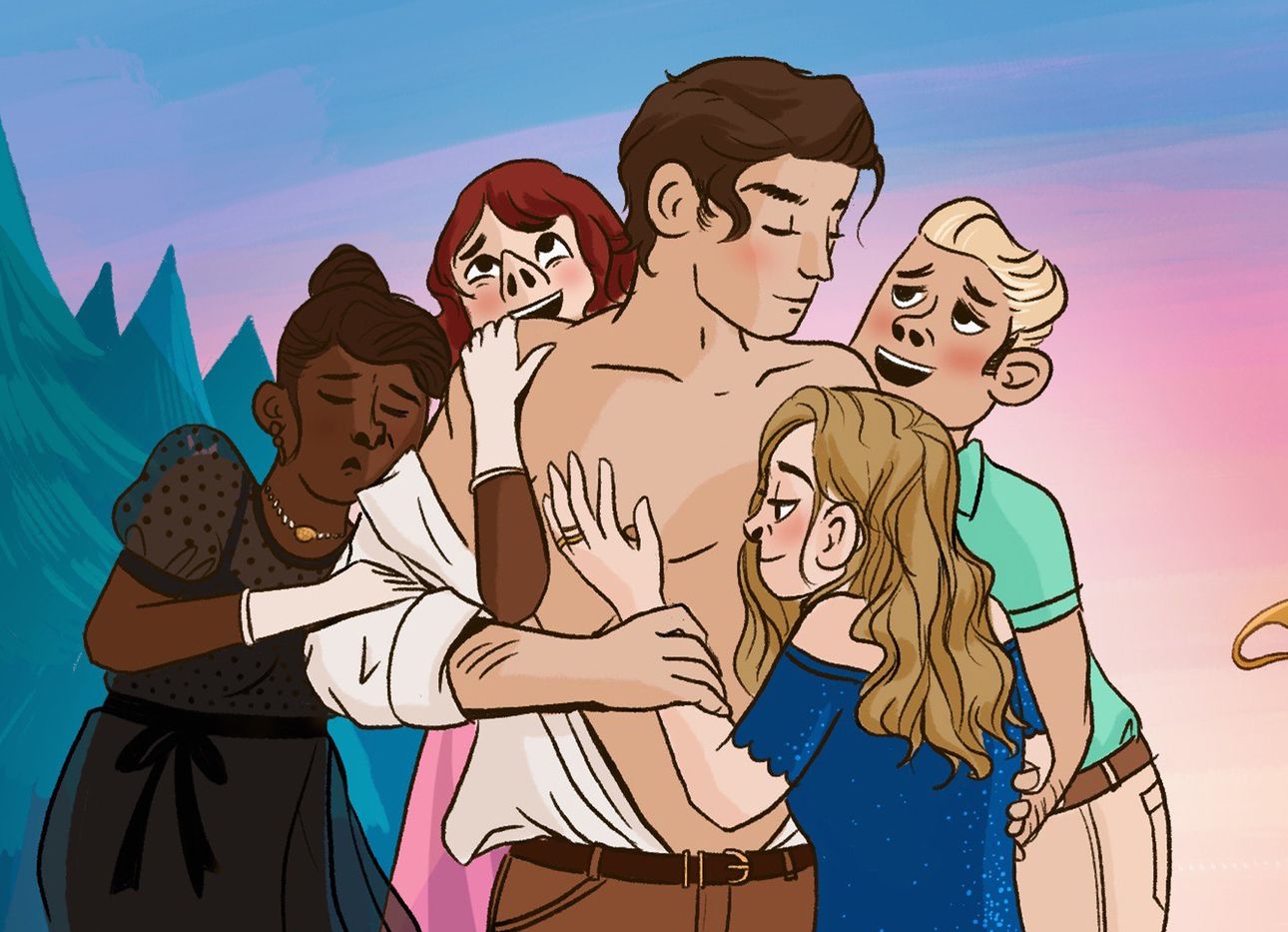
The Most Enticing Man Smells, According to Romance Novels
In 1994, when I was a child, Mattel released Tropical Splash Ken, a blond-haired and blue-eyed hunk in board shorts and nothing else but a fragrance. The box shouted, “Ken is scented!” And indeed, he was: floral with a hint of plastic, like a glossy, fake bird of paradise. Of all my dolls, this perfumed one was my favorite, my top pick for my Barbies whenever they needed a hot date. As I got older, my olfactory palate, and tastes in playmates, became more discerning, but the connection between Ken’s aroma and his desirability remained evidence of a seldom-discussed truth: Smell and courtship are inextricably linked.
So I was fascinated to find Allison Breed’s Male Scent Catalog, published in the form of a Twitter account called @RomanceSmells. There, for the last four years, she has been recording the ways that romance novelists describe smell and its relationship to amorous allure. Breed, who lives in Portland, Oregon, reads 20 romance novels a week on average, and posts her favorite descriptions of characters’ odors as she goes along. While she reads a variety of romance subgenres, including those featuring only lesbian and gender nonbinary characters, it was the the descriptions of male scents that intrigued her the most.
Among her discoveries: Men in these novels wear warm, spicy cologne. It is never overpowering enough to drown a crowded elevator. They smell of champagne, but not a hangover. They don’t stink. Their sweat smells of “sunshine and sex,” which, in Kristin Callihan’s book Fall, the romantic protagonist wants to bottle: “They should make it into a cologne: Hot Sweaty Guy.” (These are fantasies, after all.) Billionaires smell like “expensive, French-milled soap scented with sandalwood,” as in Penny Reid’s Capture, while blue-collar workers smell like Irish Spring, a go-to man scent for author Kate Clayborn. Breed recently retweeted a quip that reads, “Is it even a romance book if the main character doesn’t smell like a damn tree[?]”, a nod to the dozens of quotes she’s posted about men smelling like pine, cedar, and evergreens. Other times, men smell like nothing identifiable, such as an “an impending sin” (as L.J. Shen wrote in Dirty Headlines).
The olfactory vocabulary changes when the romance gets steamy and the tone goes from flirty to dirty. Stripped bare, quite literally, the men in these novels smell like … men. They are routinely described as smelling “manly,” “like a man,” “like maleless,” or simply “masculine.” The protagonist in Kelly Siskind’s The Knockout Rule “smelled like the definition of a man.” She doesn’t have to say more. The circular lexicography—he smells manly because he is a man—works as a quick, convenient portal to illustrate the sensuality of masculinity.
That simplicity is what I found most captivating about Breed’s feed. Scrolling through her tweets, it became clear that romance novelists use scents as erotic shorthand for men’s personalities, wherein their personalities are that they are masculine. It lets them cut to the chase: He’s a man, and that’s hot. Within their worlds, men are strong, like trees and whiskey, but soft, like fresh, clean laundry.
This is what’s fun about romance novels. The one-dimensionality of the characters—often described with tongue-in-cheek humor—keeps the novels free of clutter that would complicate the plot, in which two (or more) people fall in love and make love, too, along the way. These men are archetypes, so much so that they seem like one man in multiple universes, like a doll that can be dressed up as a fireman, cowboy, or professor, but always with the same rock-hard pecs and chiseled jawline. But in this fantastical genre of literature, apparently, you know what really kicks a man’s appeal up a notch? A smoky top note, the smell of warm hay, a hint of a leather-bound book, and, as Lauren Landish calls it in Mr. Fiancé, a sniff of “unique manly flavor.”